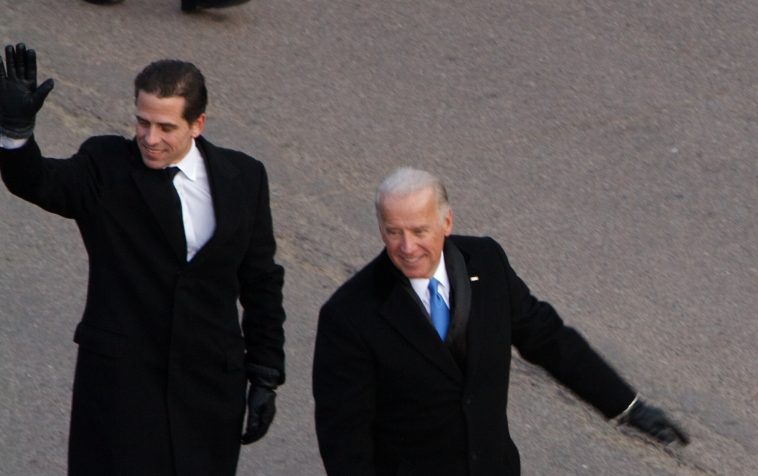Newly released records and testimonies have revealed a questionable endeavor of the president’s son, Hunter Biden, with potential ties to the Biden administration. During the era when Joe Biden served as vice president, Hunter sought funding from the U.S. government for a potentially lucrative energy project in Italy. Hunter’s association with the Ukrainian gas company Burisma, where he sat on the board, is connected to this incident. The information suggests he penned a letter in 2016, directly to the U.S. Ambassador to Italy, soliciting support for the business venture.
Though the details of Hunter’s solicitation remain undisclosed, it seems the situation was met with discomfort and reluctance within the embassy. The embassy staff were concerned about bending to the wishes of the vice president’s son, lobbying for a foreign company. An official of the U.S. Embassy, representing the Commerce Department in Rome, exhibited caution in their response, stressing the need to refrain from an unwarranted advocacy on behalf of the Ukrainian firm.
This incident shows an apparent attempt by the Hunter Biden to wield his father’s political influence for advancing his overseas business ventures. The concern was that the U.S. government should not be openly advocating for a foreign company without it undergoing proper channels through the Department of Commerce’s Advocacy Center, a program designed to aid U.S.-based enterprises in their commercial relations with global governments.
An account by Hunter’s attorney, Abbe Lowell, merely added to the mountain of ambiguities. He stated that Hunter had asked ‘various people’ to facilitate an introduction between Burisma and the president of the Tuscany region of Italy, in pursuit of a geothermal project. Yet, despite the gravity of the subject matter, the actual contents of Hunter’s letter to the U.S. Ambassador were not disclosed by the State Department.
In an apparent move to distance the then Vice President from the incident, a spokesperson from the White House claimed that Joe Biden was not aware of his son’s actions. However, this reeks of suspiciously selective ignorance. It seems odd for the vice president to be oblivious when his son was seeking assistance from the U.S. Embassy in Italy, for a project associated with Burisma.
There was also another incidence of Hunter’s attempt at utilizing his political lineage for personal gain. His outreach to the State Department on behalf of a foreign client – a real estate mogul facing corruption allegations in Romania – was revealed in a recent court filing. While not registered under Foreign Agents Registration Act (FARA) as a lobbyist for either party, it’s clear that Hunter wasn’t shy about leveraging his father’s political reach for his own ends.
In the wake of a sluggish response rate to the Freedom of Information Act requests, The Times decided to seek legal recourse, eventually culminating in the release of a series of documents. However, embrace yourself for a shocker, none of the unsealed documents shed any light on Hunter Biden’s efforts to lobby the U.S. government. While communication occured between Hunter and the U.S. Embassy in Romania, most of these exchanges lacked transparency.
The timing of the document release is an interesting point of discussion. Although a State Department spokeswoman insists that this is purely coincidental, the sequence of events leads one to question this. The release of the documents related to the Italian project suspiciously falls right after President Biden ended his re-election campaign and passed the torch to Kamala Harris for the Democratic nomination.
Herein lies another classic example of government bottleneck, delay, and inefficiency. With a backlog of around 19,000 FOIA requests, some dating back years, the State Department doesn’t seem to be in a rush to release public information promptly. This sluggish release of requested files does little in the way of promoting governmental transparency, limiting the public’s right to information.
The reveal is expected to further fuel skepticism among Republicans, who have long highlighted the younger Biden’s foreign business engagements as a stain on his father’s political legacy. The revelation of the Romanian interference adds grist to the mill, chronically chronicling Hunter’s association with foreign companies while there wasn’t any evidence regarding his Italian venture.
The solicitation was supposedly conducted on behalf of Burisma due to difficulties securing regulatory approval for the Tuscany project. This information was gleaned from emails found on Hunter’s laptop. It gives insight into the possible intentions behind Hunter’s communication with the U.S. Ambassador and a businessman in Italy. However, there was no response from any official connected with Burisma on this matter.
Despite a compelling saga, the outcome was rather anticlimactic. The projected geothermal energy project in Tuscany, despite all the strategic planning, under-the-table communications, and questionable attempts at intervention from Hunter Biden, never materialized beyond the documents. The U.S. embassy’s support for Burisma is an ambiguous aspect, and the project petered out even before drilling could start in Tuscany.
In conclusion, this episode will be chalked up as another questionable venture by Hunter Biden and draws further attention to the integrity of Joe Biden’s administration. While each revelation intends to shed light, it often ends up throwing up more questions. The family’s selective ignorance, the foreign lobbying, and Hunter’s unabashed exploitation of his father’s political footings make one question the transparency of the Biden administration.


